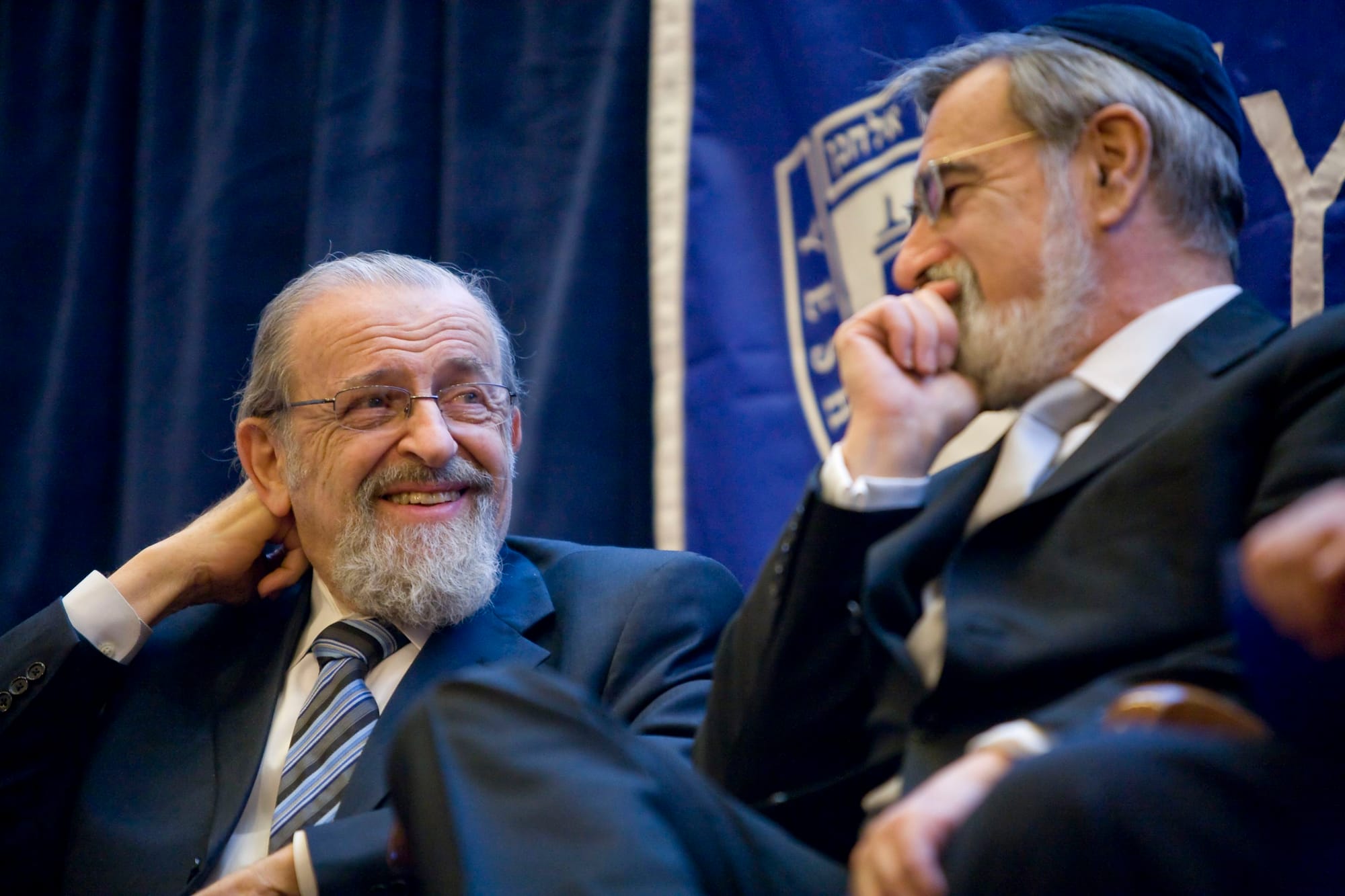The American who might have been Chief Rabbi

Originally published in The Jewish Chronicle, https://www.thejc.com/judaism/the-american-who-might-have-been-chief-rabbi-esjjhudj.
The launch of a new website dedicated to the legacy of Rabbi Dr Norman Lamm (1927–2020) invites us to recall the deep and sometimes unexpected bonds between this American rabbinic giant and the Jewish community of Britain.
For decades, Rabbi Lamm – longtime president and chancellor of Yeshiva University, pulpit rabbi and prolific thinker – was a familiar and respected figure across the Atlantic, his name surfacing in communal conversations at pivotal moments, his friendships influencing the tenor of Anglo-Jewish life.
That esteem was made clear in 1961, when Chief Rabbi Israel Brodie courted him for the position of principal of Jews’ College. It was an extraordinary gesture: to invite a young American rabbi to assume responsibility for the training of Britain’s future rabbinate. Five years later, in 1966, his name surfaced again the same year, when British Jewry faced the delicate task of choosing a new chief rabbi.
At the time, many regarded him as a natural candidate — brilliant, articulate, and already recognised internationally as a leading rabbinic voice. Had he accepted, Anglo-Jewry might have taken a different path, guided by a highly independent-minded American-born rabbi.
Instead, deeply invested in his pulpit and Yeshiva University, he chose to remain in New York. His good friend Rabbi Immanuel Jakobovits accepted the call instead and went on to a distinguished 25-year tenure.
Rabbi Lamm’s friendship with Jakobovits was not only professional but deeply personal. From 1958 until 1966, Jakobovits served as rabbi of Manhattan’s Fifth Avenue Synagogue, a near neighbour of The Jewish Centre where Rabbi Lamm was spiritual leader.
The two men – both still in the early stages of careers – became close colleagues and confidants. Their conversations on Jewish law, ethics, and the place of Jewish thought in public life continued long after Jakobovits returned to London to take up the Chief Rabbinate.
Many of the letters in the newly launched archive are strikingly intimate: Rabbi Lamm often addressed him affectionately as “Mano,” a reminder of the warmth and candour that defined their relationship. In one note, Jakobovits even asked Lamm if he might borrow a turn of phrase or two for his own installation address as Chief Rabbi — a telling window into the intellectual and personal trust between the two.
That collegiality extended into practical rabbinic leadership. In the 1960s, Rabbi Lamm worked closely with Rabbi Jakobovits to establish the highly controversial eruv on Manhattan’s Upper West Side. At a time when eruvin were regarded with suspicion, the decision required courage and creativity – qualities that would mark Rabbi Lamm’s leadership throughout his career.
Around the same period, Rabbi Lamm and Haham Solomon Gaon, who had served as Sephardic Chief Rabbi of the British Commonwealth, and also stood shoulder to shoulder in support of the Bene Israel community of India, whose halakhic status had come under fire. Rabbi Lamm rushed to quell the controversy, issuing appeals defending the dignity and Jewish identity of a community vulnerable to exclusion.
A younger generation may recall a different story. In 1968, a 19-year-old British philosophy student in New York telephoned Rabbi Lamm out of the blue. The caller wanted to speak about Torah and general wisdom, about the sainted Rabbi Isaac Abraham Kook, and about the vision of Yeshiva University.
Rabbi Lamm not only answered the phone but invited him in for more than an hour’s conversation. That student was Jonathan Sacks. The encounter left a deep impression, and decades later, as Chief Rabbi, Rabbi Sacks recalled it with gratitude at Yeshiva University’s 2010 Norman Lamm Prize Lecture, noting how formative it had been to experience Rabbi Lamm’s warmth and intellectual openness.
Yet perhaps what made Rabbi Lamm most distinctive was his independence of mind. He was never afraid to chart his own course, even when it meant defying convention. A striking example came in 2004, when he accepted an invitation to teach at Limmud UK over the stated opposition of Dayan Chanoch Ehrentreu. Rabbi Lamm did so respectfully, without defiance or drama, but on principle: he believed in the power of Torah learning to reach Jews wherever they could be found, and he trusted Orthodoxy’s ability to stand tall in the marketplace of ideas.
His participation encapsulated his leadership style – principled, confident, and unafraid to take responsibility for difficult choices.
As the new Lamm Legacy website makes available thousands of his sermons, letters, and essays, British readers will find not only the record of an extraordinary American career but also a mirror of Anglo-Jewry’s own journey. From his correspondence with Rabbi “Mano” Jakobovits to his response to Dayan Ehretnreu, the archives reveal a leader whose thought and influence spanned continents.
For those who knew him as a potential candidate, a trusted colleague, or simply a visiting scholar whose words lingered long after he departed, the site offers a chance to revisit Rabbi Lamm’s voice. For those meeting him for the first time, it provides a window into the mind and heart of a rabbi whose loyalty to Judaism and the Jewish people made him, in the fullest sense, both ours and yours – who can be rightly remembered on both sides of the Atlantic as the chief rabbi who might have been.
